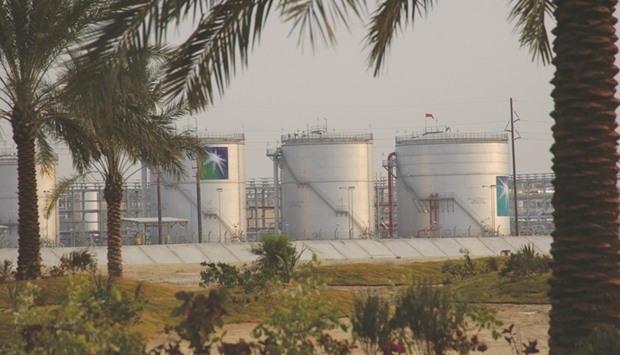Saudi Arabia, the world’s top oil exporter, plans to discuss energy cooperation agreements with China and Japan, the Saudi cabinet said yesterday.
“The cabinet has approved to delegate a number of ministers to discuss with the Chinese side the following projects: a memorandum of understanding (MOU) to cooperate in the energy sector; an initial cooperation memorandum in the field of crude storage,” a cabinet statement on state news agency SPA said. Discussions with Japan for an MOU for cooperating in the energy sector were also approved by the cabinet, SPA said.
Saudi Arabia has traditionally accounted for most of the crude imports by Asia, the world’s biggest oil-consuming region.
But recently Opec’s top producer has lost ground in a number of major markets including Russia and China, and faces a further threat from Iran, which is ramping up exports after the removal of Western sanctions.
The kingdom, however, has responded by pumping and shipping more oil, and with knockdown prices in Asia from state oil giant Saudi Aramco.
In 2015, Asia accounted for 65% of Saudi Aramco’s oil exports; an increase from 62.3% a year earlier.
Aramco has been in talks with China’s CNPC and Sinopec for investment opportunities in refining, marketing and petrochemicals, Saudi Energy Minister Khalid al-Falih said earlier this year.
Saudi and Japanese officials had discussed in June possible Japanese investments into the planned initial public offering (IPO) of Aramco.
Saudi Arabia’s Deputy Crown Prince, Mohammed bin Salman, unveiled ambitious plans earlier this year aimed at ending the country’s “addiction” to oil and transforming it into a global investment power.
An IPO of less than 5% of state-run Aramco is a centrepiece of that effort. So big is Aramco given its rights to the crude reserves of Saudi Arabia, that selling even 1% of it would create the world’s biggest IPO, Prince Mohammed has said. He expects the IPO will value Aramco at least at $2tn.
Oil prices fell in early trade yesterday as analysts doubted upcoming producer talks would rein in oversupply, saying that Brent would likely fall back below $50 a barrel as August’s more than 20% crude rally looks overblown.
Soaring exports of refined products from China also pressured prices, as this was seen as the latest indicator of an ongoing global fuel glut, traders said.
China’s July exports of diesel and gasoline soared by 181.8% and 145.2% respectively compared with the same month last year, to 1.53mn tonnes and 970,000 tonnes each, putting pressure on refined product margins. Analysts cast doubt on an August price rally, saying much of it was a result of short-covering and anticipation of upcoming producer talks to discuss means to curb oversupply.
“Positioning data seems to confirm our view that the latest oil bounce is more technical and positioning-oriented than fundamental.
In fact, new buyers have been mostly absent the past few months,” Morgan Stanley said.
Regarding the upcoming producer talks, the bank said a agreement was “highly unlikely” and that there were “too many headwinds and logistical challenges to a meaningful deal.” Members of the Organisation of the Petroleum Exporting Countries (Opec) and other producers like Russia are set to meet in September to discuss a freeze in output levels in order to rein in oversupply, but analysts said rivalry between Opec-members Saudi Arabia and Iran made a deal unlikely.

In 2015, Asia accounted for 65% of Saudi Aramco’s oil exports; an increase from 62.3% a year earlier
